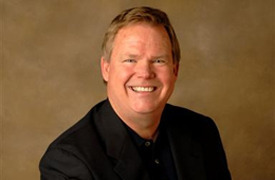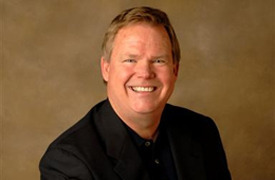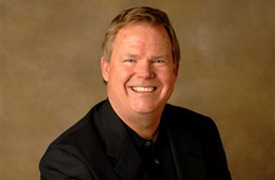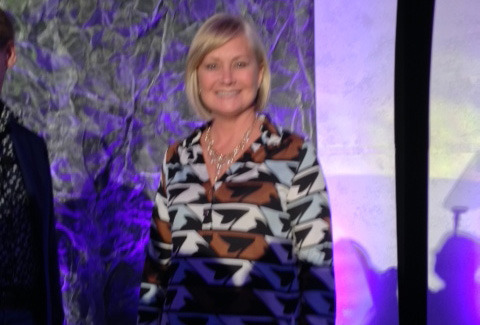Helene Lerner's Blog, page 137
October 15, 2013
Why You Need to Accept Compliments

Today, we thought we'd re-post an oldie-but-goodie. The message is still relevant for many women:
Self-deprecation has never been trendier. Celebrities like Tina Fey and Lena Dunham have built careers around poking fun at lovably pathetic caricatures of themselves, and the modern comedienne is as beloved for her unpretentiousness as she is for her actual skill. For the average woman, a compliment usually triggers either a sardonic wisecrack, a presentation of counter-evidence, or a flushed face coupled with an immediate segue to another topic. Very rarely does today's woman return a compliment with a smile and a "thank you," or allow it to hang in the air for more than a moment. Even more rarely does she openly agree with the pronouncement.
A crisis of confidence isn't necessarily to blame. While many of us struggle with self-doubt behind closed doors, this inner turmoil has little to do with the gracious acceptance of public praise. Rather, we are taught that self-congratulatory behavior is somehow unbecoming—that shamelessly owning a piece of good will renders it, paradoxically, void. In reality, however, deflecting a compliment does both parties a disservice. The recipient loses any momentum that might be gleaned from her moment in the sun, while the giver faces an awkward decision to argue back or meekly redirect the conversation elsewhere. An inability to take a compliment shakes out to something like a rejection.
To understand this emotional exchange, consider the compliments that have stuck with you over time. A generic nod at your appearance can put a spring in your step for several hours, but any stranger on the street can spot a snazzy outfit or shiny hair. The most meaningful praise usually stems from somewhere deeper. Building a track record for your uncanny listening ability or your knack for giving sound advice takes time and effort. These compliments symbolize more than just talents that you possess—they reflect a relationship history that has allowed you to share these gifts with another person. Bestowing praise is that person's attempt to return your gift in kind.
Accepting a compliment, then, is about honoring the relationship that lies beneath it. Respect yourself enough to believe that the praise you receive is warranted, but also put yourself in the other person's shoes—would you want your own words hurled back at you as though they were somehow inadequate or ill-advised? The next time someone offers up a blessing on anything from your smile to your sense of humor, let them know how much you appreciate the gift that they are giving you. Absorb the compliment, and let it inform your self-concept and your mood. Then seize the next opportunity to pay that good will forward. Reframing compliment culture means making it acceptable and inviting to give as well as receive.
—Emma Aubry Roberts
October 14, 2013
Three Tips on Preventing Gossip About You
 Offices can feel like breeding grounds for gossip. So how do you avoid being at the center of it? Here are a few tips:
Offices can feel like breeding grounds for gossip. So how do you avoid being at the center of it? Here are a few tips:
Play nice with the gossip queen. When someone creates drama, your first instinct may be to keep your distance. But people often gossip when they feel insecure, which may result from a fear of judgment or rejection. Make the office gossip queen feel like part of the group. Engage her in gossip-free conversation. Show her she can trust you not to be judgmental and she will be less likely to spread rumors about you.
Ask for clarification. When a boss or coworker gives you feedback – especially if it’s not entirely positive – make sure you’re clear about what they’re trying to tell you. Ask for clarification on the spot. Avoid turning to less reliable third parties for their take, as that could start the rumor mill running. Open, honest communication is crucial.
Don’t fan the flames. Participating in gossip about others makes it more probable that they’ll do the same when a rumor about you is making its way around the office. So, as enticing as gossip can be, by passing it on, you’re ultimately just hurting yourself.
-Sarah Cooke
How to Create Positive Change Today
 Malala Yousafzai—even if you don’t recognize her name, I bet you know her story. A year ago this month, the then fifteen-year-old was shot in the head for championing every girl’s right to be educated. After an unbelievable recovery, she has gone on to speak to the United Nations and the World Bank and has met privately with President Obama. Now her story has been told in her new book, I Am Malala.
Malala Yousafzai—even if you don’t recognize her name, I bet you know her story. A year ago this month, the then fifteen-year-old was shot in the head for championing every girl’s right to be educated. After an unbelievable recovery, she has gone on to speak to the United Nations and the World Bank and has met privately with President Obama. Now her story has been told in her new book, I Am Malala.
She has inspired the world. The question is, what will we do with her message? How can we join in with this remarkable young woman? To help you answer that, here are three realities to keep in mind:
You can make a difference: We don’t have to be Malala to make a difference—we just have to decide to do so, right now, with what we have. We’ve been conditioned to revere titles, celebrity and wealth—all good things—but we can make a contribution without them. Remember that you are unique and only you can help in your particular way.
Let your passion guide you: She was passionate about advocating for girls’ education. What are you passionate about? Start with that and ask yourself how you can begin making even a small contribution—the answers will come.
Focus on your world: Malala’s world was a small part of Pakistan—where is your part of the world? What small thing can you do where you are today that will help in some way? A world of people doing something, however small, adds up to larger change.
-Alan Allard, Leadership Coach/Life Coach
www.alanallard.com
October 11, 2013
Why You Need to be Real
[image error]We recently spoke with Elizabeth Lesser, co-founder of the Omega Instutute, a non-profit, educational center in Rhinebeck, NY that hosts forums, conferences and workshops on personal growth. She had some powerful insights to share with us.
What is it that sparked in you the need to focus so intently on your personal growth?
I was drawn to seek wisdom from others at a young age. My earliest memories are of waking up in the middle of the night at age four or five, terrified about the prospect of death. I wanted desperately to find someone who might know more than I did about such things. And so, when I left home and struck out on my own, I looked for and found brilliant teachers and comforting guides who helped me probe these universal questions.
In your book Broken Open, you talk about the impact of your divorce. What did you do to overcome that and how has it helped you grow?
I had so much fear about the future—for my children, my finances, what I thought my life was supposed to be. I was faced with a choice—I could fall apart and become bitter, or I could use the disaster to reevaluate who I was, what I wanted, where I was going on my life journey. Everyone is faced with that choice at different times in life. You can fight against it and ask “why me?" or, you can ask what the loss has to teach you.
There are many ways to help you stay open when things are changing, like meditation, therapy and physical exercise have helped me tremendously. But you know what helps the most? Knowing that you are not alone; that there is not something wrong with you; really understanding that EVERYONE goes through hard times.
What was your goal in co-founding the Omega Institute? What do you feel it has to offer its students?
I was quite young when we started Omega—in my early twenties. We didn’t have a “goal” as much as we had passion—for a different way of living and learning. We didn’t realize then that we were at the front of a huge wave that would sweep the country. Omega has grown into an institute of influence way beyond our early imaginings. Thirty-six years ago our signature coursework was far from the mainstream of American thought and practice. But today our teachers are featured in the press and medical schools train doctors in the subjects we helped pioneer.
We at WomenWorking are committed to empowering women and girls. You've started Omega’s Women and Power conference. What do women need to know about connecting more with their power and taking initiative to become leaders?
I am interested in women not just becoming powerful, but also in redefining what a powerful person looks like and acts like. Power and strength in the service of ego, with the fuel of pride and violence—this is a worn-out, old-world paradigm. Which means women have an incredible opportunity, even an advantage. As POWER-OUTSIDERS for most of recorded history, we are coming into our own strength at an auspicious time. As old systems of governing and leading break down, as the world becomes ever more interconnected, we have the chance to recognize what’s broken and to create something different.
As a mother of three sons, what lessons do we need to teach our boys about relating to women?
I don’t think teaching our boys about how to relate to women is as important as BEING the kind of woman in our boys’ lives who demands a certain kind of respect and love. And having the kind of relationships with the men in our lives—husbands, colleagues, friends—that model respect for our authentic selves.
You’ve worked with Oprah Winfrey and studied with amazing spiritual leaders like the Dalai Lama and Thich Nhat Hanh. What have those collaborations taught you?
I have met hundreds of spiritual leaders in my years at Omega. I am most touched and inspired by people who have the courage to be real. People like Oprah, the Dalai Lama and Thich Nhat Hanh aspire to walk what they talk. They aren’t perfect—that is one thing I have learned through my collaborations. No one is perfect. The point is not to be perfect, rather it is to commit every day—over and over—to be true to one’s deepest and most simple inklings of wisdom, kindness and grace.
-Sarah Cooke
Tasty Treats for Autumn
Recently, we spoke with Peggy Williams and Debbie Weiner, the owners of Sugar Sweet Sunshine, an adorable bakery in the lower east side of Manhattan. Take a look at their new Halloween and Thanksgiving treats -- a great way to indulge!
You might enjoy this past interview we did with them, as well.
Video Editor - Dominique Guerra
October 10, 2013
Creative Jack-O-Lanterns for Halloween
Earlier this week, we showed you some fantastic carved pumpkins from Hugh McMahon. We thought you might enjoy this past interview we did with him. Take a look!
Video Editor - Christina Raia
Three Surprising Steps to Help You Succeed

Jim is a new client and he began his first coaching session with me wondering what had gone wrong in the past year. He was doing well at work, but had failed to get a significant promotion and that had shaken him up. His marriage of 22 years was also on his mind - he felt he needed to fix it. Jim had given a lot of thought to why things had "gone wrong"--but I wasn't interested in that, much to his surprise.
It's not that I wasn't empathetic or that I wasn't interested in Jim; far from it. But I knew that talking about what had gone wrong and why it had gone wrong was only going to make things worse. What Jim was doing is what many of us have learned to do--we analyze what goes wrong and we try to figure out where we messed up. Instead, we should do the opposite--we should analyze what has been going right and how to do more of that.
I interrupted Jim’s pattern and began to ask him about his strengths, his passions about the successes he has had in the last year at work and at home. Why? Because what we pay attention to matters. Where we direct our energy matters.
With that in mind, I began to help Jim to recall his past successes and focus on what he wanted, why he wanted it and how to get more of it. At the end of the coaching session, I gave Jim three small coaching assignments that I also encourage you to do at the end of the day:
Record your success: Write down one to three things that have gone well that day.
Relish your successful moments: Play a mental movie of what went well and enjoy it all over again.
Reward yourself: Compliment yourself for something related to what you wrote down and played a mental movie of.
Remember that what you focus on grows. Pay attention to the success you create and you will likely get more of it.
-Alan Allard, Leadership Coach/Life Coach
www.alanallard.com
October 9, 2013
Valuable Lessons Golf Teaches You About Business
 Deborah Gross was an IT professional for the defense industry. Many of her male colleagues were using golf as a way of conducting business outside the office. At age 40, she decided to pick up the game. She now owns her own consulting firm and attributes golf to opening doors for her. As she upped her game, here’s what it’s taught her about business:
Deborah Gross was an IT professional for the defense industry. Many of her male colleagues were using golf as a way of conducting business outside the office. At age 40, she decided to pick up the game. She now owns her own consulting firm and attributes golf to opening doors for her. As she upped her game, here’s what it’s taught her about business:
. Meet and Mingle: Founding the Dayton, Ohio chapter of the Executive Women's Golf Association, she was able to gather women from all different professions and introduce them to each other.
. From "I" to "We": Golf is a way to bond. Each player has a different set of skills. Either way, playing in groups together teaches teamwork and trust.
. Don't Sweat the Small Stuff: In golf, sometimes trying too hard can make it worse. For example, the harder you swing, the easier it is to miss hit.

. Just Relax: Golf can be a great way to relieve stress, focus and just have fun.
. Breaking the Ice: Golf is a conversation starter. She found that when she spoke about golf to other individuals, especially in business, it was a way to connect and share a common interest.
Advice from our Coach: Why You Need to Listen to be Heard
 Stephen R. Covey, Ph.D wrote The Seven Habits of Highly Effective People in 1989 and it became an instant hit. Let's take a look at the fifth habit, “Seek first to understand, then to be understood.” To make this practical, think about someone you have been frustrated with; perhaps your manager, a co-worker, family member or friend.
Stephen R. Covey, Ph.D wrote The Seven Habits of Highly Effective People in 1989 and it became an instant hit. Let's take a look at the fifth habit, “Seek first to understand, then to be understood.” To make this practical, think about someone you have been frustrated with; perhaps your manager, a co-worker, family member or friend.
Let’s say that you haven’t been able to get them to agree with your point of view or to say “yes” to your request. Why is that? Is it because they are just being stubborn, competitive, self-centered or uncaring? We’ve all felt that way at some point in a relationship, be it at work or in our personal lives. But that kind of thinking only fuels the problem.
When we blame the other person for what’s going on, we unintentionally give up our power to connect and influence the outcome we want. Coming to the conclusion that the problem is “him” or “her” is a sure way to get that person to conclude that we don't understand anything at all. If that's the case, what can we do instead? We can "seek first to understand."
Here are three tips:
Assume you have missed something important: I know, you have had countless “discussions” and you can repeat the other person's position and concerns verbatim. Be willing to start over—this time with honest curiosity.
Apologize for your part in the disconnect: If you are truthful with yourself, you will find something to apologize for. Saying, “I don’t think I’ve listened as well as I could have” will build goodwill. Offering an apology will also go a long way toward helping the other person feel heard and respected.
Agree when you can: Seeking to understand doesn't mean you have to agree with everything the other person says or wants—but it can be beneficial to try to agree with some things along the way. It’s about giving first before we expect to receive.
-Alan Allard, Leadership Coach/Life Coach
www.alanallard.com
October 8, 2013
An Innovative Conference, Created by and for Women
This morning I attended the Women in Cable Telecommunications 2013 Leadership Conference. I went to a townhall meeting on diversity featuring pioneering diversity champions. CNN host Suzanne Malveaux moderated. They talked about how, although we're gaining momentum, it is still important to keep the pressure on -- more women and minorities are needed in advertising sales, technological positions and other areas of the business. At the end of the panel, David Cohen of Comcast poignantly said that their industry has a great opportunity, not only to promote progress within companies, but to change the face of diversity and inclusion around the world, since media plays such a big role in the lives of viewers.
[image error]
From left to right: Suzanne Malveaux, CNN host, Adria Alpert Romm, Discovery Communications, David Cohen, Comcast, Jacqueline Hernandez, Telemundo, Rhonda Taylor, Cox Communications
A leader I've known for years, Jill Campbell, EVP and COO, Cox Communications spoke on how important it is that we step up and claim our accomplishments. Jill is a leader who not only talks the talk, but walks the walk. I met some terriffic women and there was a wonderful energy in the room. Also, Iyanla Vanzant spoke about letting your vision move you forward by taking one small action at a time.

Jill Campbell

Iyanla Vanzant
Helene Lerner's Blog
- Helene Lerner's profile
- 9 followers



